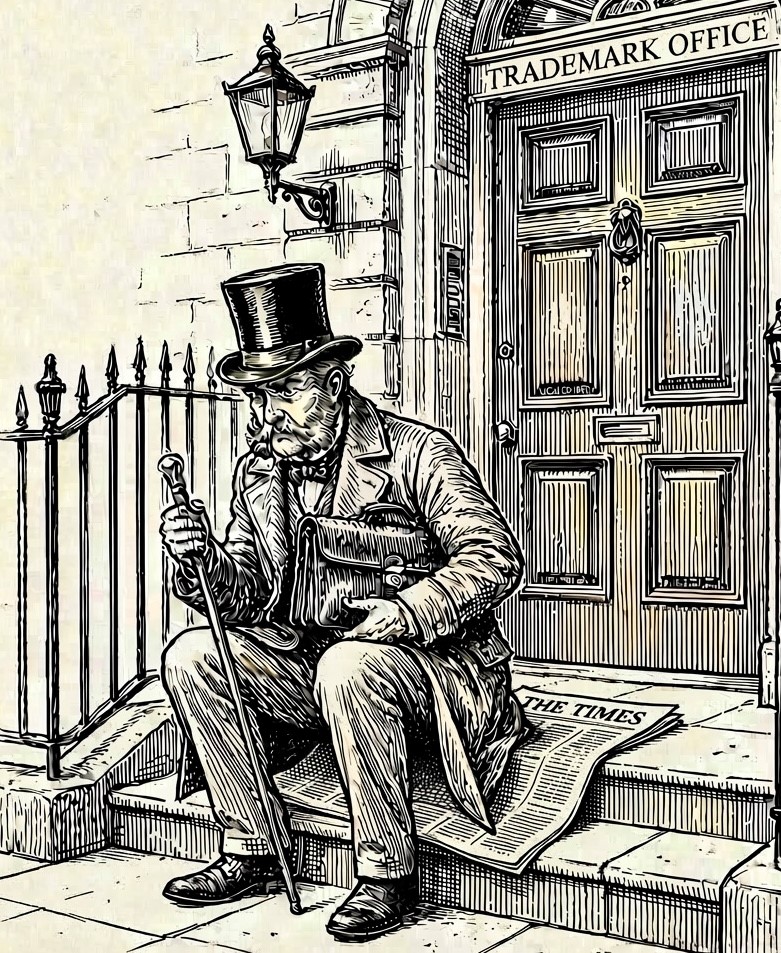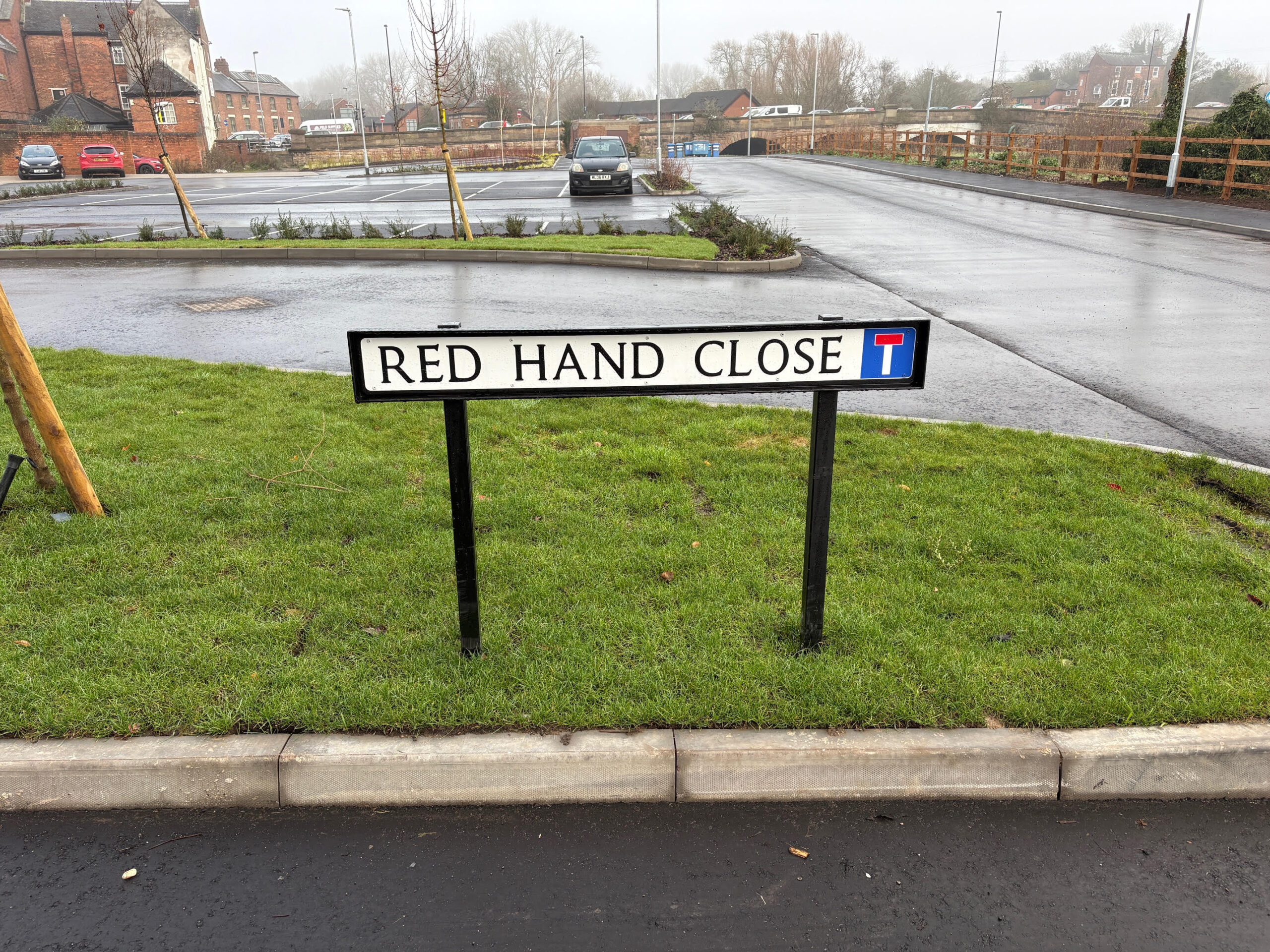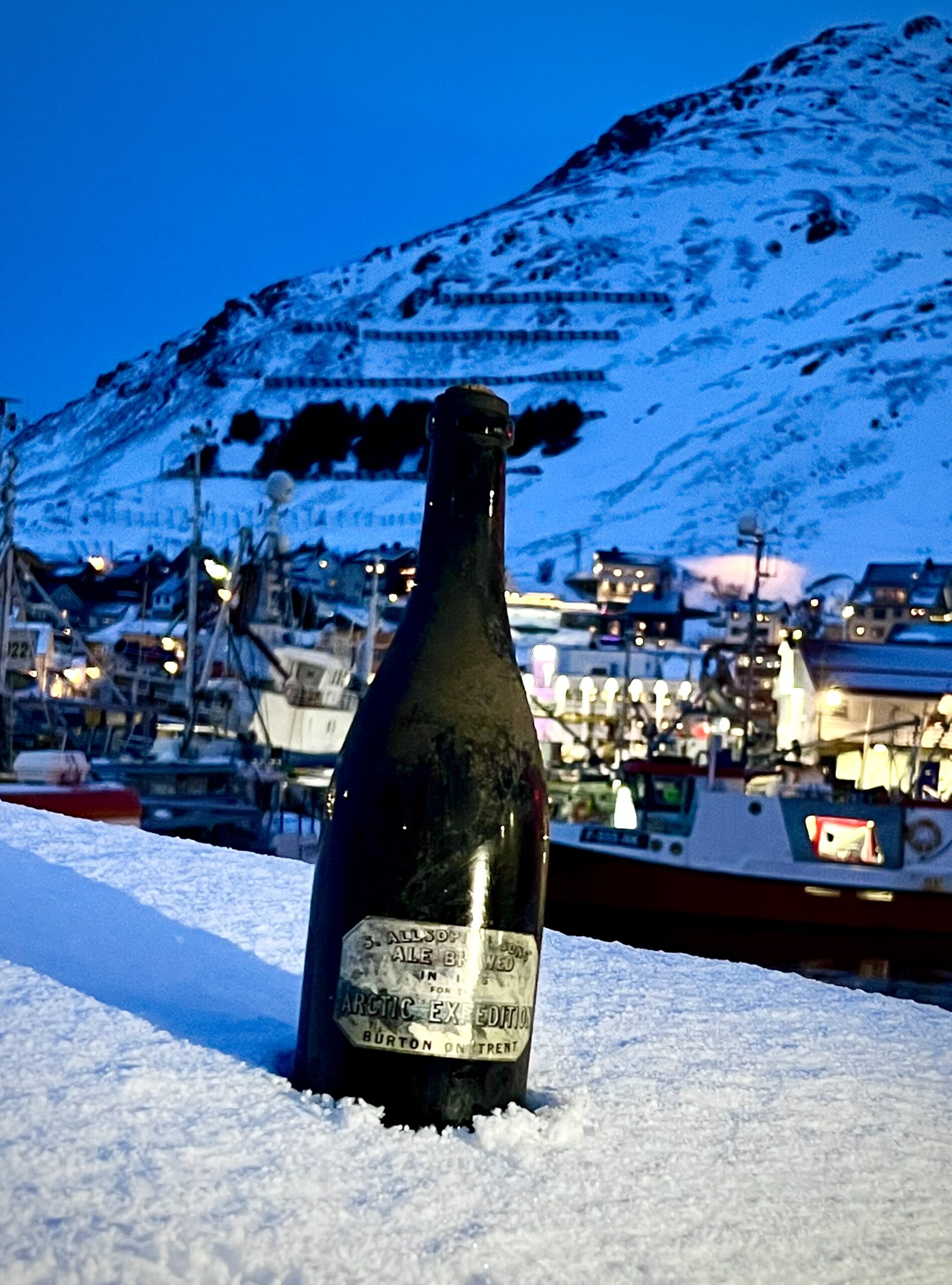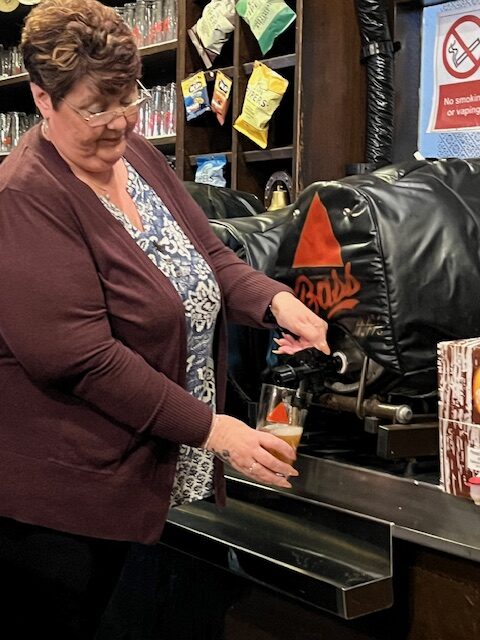On New Year’s Day 1876, a lone and anonymous brewery employee secures the first registered trademarks in Britain; Bass, Ratcliff & Gretton’s three iconic beer labels, after a night spent waiting in the cold.
My name, should you trouble yourself to ask, is of no importance whatsoever, and will never be engraved upon marble, entered into ledgers of fame, nor toasted by future generations. Some may reasonably question whether I ever drew breath at all, and they would not be wrong to do so, for there exists not a single scrap of proof that I ever lived. I am, in all likelihood, no more than a tale contrived by another anonymous brewery employee, set down some eighty years after the event, and fashioned solely to lend a little romance to the prosaic business of opening an envelope and attending to the business of forms and papers on a Saturday morning in a London office. How the brewery actually achieved its quiet coup in securing the first of the British trademarks has slipped from memory entirely, and with it, if indeed I ever was there, I also have been lost to history.
Yet my occupation on this particular morning is of no small significance, and so I find myself seated in service of Messers Bass, Ratcliff & Gretton, upon the cold, unyielding stone steps of the Trademark Office in London, at half-past eight on New Year’s Day, in the year 1876.
The sun has, by all accounts, risen; but if it has done so, it has exercised a remarkable discretion in keeping itself well hidden behind the stern façades of the surrounding buildings, as though it too objects to gentlemen spending the night outdoors. The cold is sharp and penetrating. According to The Times, a newspaper that began last evening as a source of enlightenment and has since been reduced, by necessity rather than disrespect, to a makeshift cushion, the temperature fell during the night to forty-one degrees Fahrenheit. I am grateful for my overcoat, which has laboured manfully in my defence, and count myself fortunate that the weather remained fair; had rain been forecast, my employers would surely have excused my vigil, such is their concern for both their interests and the wellbeing of those who serve them.
These employers are not men of modest ambition, but brewers of such renown that their ales are spoken of in distant ports and foreign tongues, and consumed in places where English weather, and English patience, are but dimly understood.

If you should care to picture me, you may do so without fear of excess. Imagine a figure not out of place in a respectable engraving: noble grey beard, a top hat worn with quiet confidence, a smart suit brushed and pressed, and a walking cane carried not from necessity but from obedience to fashion, which governs a gentleman’s appearance with the same unyielding authority that Parliament applies to the nation. I am, in short, a proper Victorian gentleman, though one chilled to the marrow after a night spent communing with stone steps better suited to statues than men.
I was instructed, in terms both clear and firm, to ensure that I stood first in the queue when the doors opened this morning. I therefore arrived after supper yesterday evening and was relieved to find myself alone. Indeed, I remained so throughout the night, save for the occasional passer-by. London is accustomed to the sight of men sleeping in doorways, but my tidy appearance, being neither dishevelled nor reduced to rags, provoked a number of curious glances, as though my presence posed a small but nagging riddle, which most preferred not to solve before hurrying on about their business.
I hold fast to my briefcase, and do so with good reason, for within it resides a fortune. Not my own, alas, but my employers’. Inside lies an envelope containing a quantity of papers and most precious the three example labels pertaining to my employers’ beers, small in number and size yes, yet they are worth more than gold: the first bears a Red Triangle, proclaiming Bass & Co’s Pale Ale; the second a Red Diamond used for Strong Ales, and the third a Brown Diamond, reserved for Extra Stout.
This was no ordinary New Year’s Day: the Trade Marks Registration Act 1875 coming into force this very morning, and I was here to register the first three under its authority. The labels being objects of envy throughout the brewing world. It is said, with some justice, that a determined man may find Bass beer on the far side of the globe, provided he has the patience to look and the wisdom to recognise it.
Such fame, of course, invites mischief. There have been many scoundrels, fellows of slippery conscience and inventive dishonesty, who have attempted to pass off their own inferior products as ours, either by refilling Bass bottles or worse by producing labels altered only enough to deceive the unwary. I have seen, with my own eyes, bottles adorned with a red bell instead of the triangle, and beer brazenly sold under the name “Baass & Co.” The legal registration of these marks will at last allow Bass, Ratcliff & Gretton to pursue these rogues through the courts fortified by the full, solemn weight of the law, newly awakened to its duty and finally to protect what they have so diligently built.
The Red Triangle has been in use at Bass for as long as I can remember, and longer still, for it was known to my grandfather, who himself entered the company’s employ as a young man. In his time, as in mine, that modest three-cornered figure carried with it a reputation that travelled far beyond its hometown of Burton upon Trent.
The Pale Ale label itself was devised in the year 1855 by George Curzon, a Burtonian born and bred, a man of steady hand and sharper mind. It was he who drew the ornamental border of Stafford Knots, not for aesthetics alone, but as a deliberate snare for the dishonest, a pattern intended to perplex the forger and expose the imitator who lacked either patience or skill.

The law, it is true, has offered some measure of protection to such marks since the Merchandise Marks Act 1862 came into force; yet that safeguard was but a thin coat against a hard winter. It warned, but did not defend; it discouraged, but did not prevent. Until this very day, a man might still steal a reputation with little more than impunity. Now, at last, the law has sharpened its pen, and honest marks may stand on firmer ground.
At the stroke of midnight the church bells rang out across London, pealing bravely to welcome the year of our Lord 1876; yet for me there was no warmth of celebration, no clasped hands nor strains of Auld Lang Syne, only the bitter comfort of stone steps for a seat, and the stiff chilled vigil of duty to welcome the new year in service. As the night wore on and the cold grew bolder, I found myself repeatedly wishing that the Red Diamond had been attached to a bottle rather hidden in the briefcase, for Bass No.1, our strongest ale, was devised expressly to fortify a man against just such conditions. That it should be denied me at the very moment of greatest need struck me as an irony worthy of remark, if not redress.
But to return to the present, I am warmed by the arrival of a gentleman bearing a formidable collection of keys. He bids me good morning, cheerfully, as men tend to do when they have slept indoors, and unlocks the door of the Trademark Office. Taking pity on the shivering gent he meets, I am ushered inside and offered a seat in a small waiting area. The comfort of the chair is a blessing of the first order; the absence of a hot drink, a disappointment I endure in silence.
Fatigue soon claims me. I cannot have slept more than an hour all night, and even that was achieved in brief, untrustworthy snatches. I am awakened by a polite cough from the clerk. To my horror, I find that I am no longer alone. Three other gentlemen now sit waiting, each also clutching briefcases with an air of guarded importance. They regard me in silence, their faces politely inquisitive, as though each were silently calculating the hour at which I must have taken my place in order to secure my position at the head of the line.

“The representative of Messrs Bass, Ratcliff and Gretton?” the clerk inquires.
I nod slowly, for sleep still clings to me, heavy and unwilling to be dismissed, I rise from the comfort of the chair and clutching my briefcase as though it might otherwise take flight, I proceed down a narrow corridor into a modest office, where the purpose of my vigil is at last to be fulfilled.
“How many marks?” the clerk asks.
“Three,” I reply, and nearly offer him the wrong one first, such is my weariness. But I recover. First the Bass & Co. Pale Ale label with the Red Triangle. Ten minutes pass. Then the Red Diamond. Then the Brown.
The clerk’s pen scratches industriously across the paper as he completes the necessary forms, each stroke sounding to my tired ears like the ticking of a clock marking an historic event. Payment is then accepted, with due propriety and without remark, and so the business, long awaited and faithfully endured, is concluded in a seemingly in a trice, standing in contrast to all that had gone before.
I shake his hand, bid him a Happy New Year, and take my leave, returning to my lodgings. Back to warmth. To bed. And perhaps, just perhaps, to a bottle of Bass, finally put to its proper use.









































